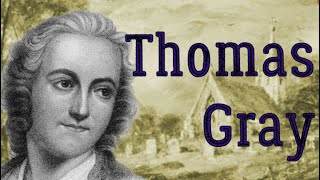Thomas Gray as a unique poet in English Literature: Welcome to gurujistudy.com my friends. Today we learn about English Poet, letter-writer, classical scholar, and professor at Pembroke College, Cambridge. An Elegy Written in a Country Churchyard is one of the most Famous Elegy by Thomas Gray. Here, we will discuss about Thomas Gray as a unique poet in English Literature.

Thomas Gray as a unique poet in English Literature
“Where ignorance is bliss,
It is folly to be wise.”
– Ode on Eton College
The composer of these ethical lines is Thomas Gray as a unique poet in English literature Sphere. These lines speak about clinical temperament of the poet itself.
Thomas Gray combines in his work tendencies and characteristics of two schools. He could not ignore the critical principles of the age and classical standards, but as a poet genius he broke loose from the conventional rules. Love of nature, sympathy for the lowly, vivid imagination and deep emotion are found in classical settings. Though his literary output is not very large, purity and beauty of style and thought have secured a high place for him.
Classic and Romantic
The most striking thing about Gray is that he began his poetical career as a classicist and ended by becoming a thorough-going Romanticist. His poetic career had three distinct periods. The highly polished odes belong to the first period; they do not reveal any Romantic influence. They contain conventional moralizing, numerous, personifications and much false poetic diction. The Elegy of the second period belongs to the ‘Churchyard’ school of poetry, the sentiment of which was connected with the Romantic Movement. The third period has the Pindaric odes in which Gray is well on his way toward Romanticism.
Diction and Versification
Gray’s phrasing is exquisite. In diction and versification he was both a Classicist and a Romanticist. He departed from the Neo-Classical heroic couplet, used different stanza forms and even blank verse. His quatrains are perfect, free from monotony or abrupt and jerky movement. He vigorously avoided the commonplace Like Keats he uses phrases, compound words and typical adjectives. But Gray’s phraseology unlike Keats, is skilled.
He sometimes uses Latin words in their original sense, a habit with Milton. Often his style is broken, and his metaphors barren. He clothes everything with imagery. But his images are ineffective and for the most part unrealized. Gray’s odes abound in personifications and uninspired abstractions.
Melancholy
Decay, death and oblivion was the subject of the ‘Churchyard school of poetry’ to which Gray belonged. A note of intense melancholy and despondency which characterized the Romantic poets is present in Gray’s poetry. So is another characteristic of Romantic poetry – the magic of distance. Unlike the classical poets, Gray wrote even about the poor. His elegy, for instance, laments the death of the poor inhabitants of a neglected village.
However remote and scholarly this interest may be, it is sincere. Gray had a rare appreciation of wild and romantic scenery. He observes and describes the beauties of Nature. He comes nearer to the Romantic poets when he invests natural phenomena with human moods and feelings “Full many a flower is born to blush unseen.” (Thomas Gray as a unique poet in English Literature)